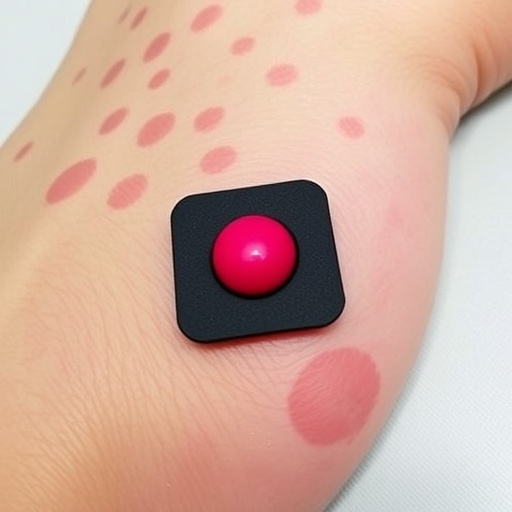Ammonia is believed to contribute to the pathology of hepatic encephalopathy, but ammonia levels in the blood do not influence treatment decisions

Credit: Sarah Pack
The liver performs several critical functions including filtering blood, detoxifying chemicals and metabolizing drugs. When the liver is damaged by hepatitis, alcohol, or primary liver disease, fibrosis ensues. Long-term fibrosis contributes to cirrhosis of the liver, which in turn can cause severe complications, including hepatic encephalopathy (HE), a condition that results in a temporary decline in mental function in up to 70% of patients with cirrhosis.
The current dogma for patients that present with HE symptoms is to obtain a blood ammonia test because ammonia is used as a traditional HE marker. Patients are then treated with lactulose to reverse the HE symptoms. However, a recent study by researchers at the Medical University of South Carolina (MUSC) challenges this standard practice. The work, published online on October 14 by The American Journal of Gastroenterology, clearly demonstrated that ammonia levels do not dictate the management of HE.
“The study shows that while ammonia is commonly used, it is simply not helpful when we treat patients,” says Don C. Rockey, M.D., professor and chair of the Department of Medicine at MUSC. “Drawing an ammonia level may be helpful in certain unusual diagnostic situations, but despite current practice which is to obtain ammonia levels in patients with cirrhosis, we don’t use it to treat patients.”
MUSC was uniquely poised to conduct this retrospective study because MUSC is one of the few academic medical institutions that teaches new trainees not to perform ammonia tests on cirrhotic patients presenting with HE. Therefore, the study included two cohorts of patients, those who had their blood ammonia levels measured and those who did not. Comparing these two cohorts provided valuable information about the therapeutic value of this test.
The results showed that the absence or presence of abnormal ammonia levels did not impact lactulose treatment. Furthermore, there was no difference in treatment between cirrhotic patients who had their ammonia levels measured and those who did not. Regardless of the ammonia level, cirrhotic patients that presented with HE received the same lactulose treatment regimen. The researchers concluded that performing the ammonia test was a waste of blood, money and resources.
“The bottom line is that ammonia levels are not helpful in management of patients with cirrhosis and HE,” says Rockey.
Patients who experience an HE incident are at increased risk for future incidents and are therefore prescribed a regimen of daily lactulose therapy. However, patients often fail to take lactulose because of its taste and it may cause diarrhea. An alternative medication, rifaximin, is prohibitively expensive for some patients and is thus often discontinued. Because of this, HE is the most common indication for admission in cirrhotic patients.
The new study does not suggest that doctors should abandon all ammonia testing.
“There are some specific circumstances where an ammonia test might be useful, but in routine management of HE caused by cirrhosis, it is not helpful,” says Rockey. Some of these circumstances include a urea cycle defect or an unknown diagnosis of HE.
In summary, ammonia levels failed to predict the severity of disease and did not guide the clinical management of HE.
###
About MUSC
Founded in 1824 in Charleston, MUSC is the oldest medical school in the South, as well as the state’s only integrated, academic health sciences center with a unique charge to serve the state through education, research and patient care. Each year, MUSC educates and trains more than 3,000 students and 700 residents in six colleges: Dental Medicine, Graduate Studies, Health Professions, Medicine, Nursing and Pharmacy. The state’s leader in obtaining biomedical research funds, in fiscal year 2018, MUSC set a new high, bringing in more than $276.5 million. For information on academic programs, visit http://musc.
As the clinical health system of the Medical University of South Carolina, MUSC Health is dedicated to delivering the highest quality patient care available, while training generations of competent, compassionate health care providers to serve the people of South Carolina and beyond. Comprising some 1,600 beds, more than 100 outreach sites, the MUSC College of Medicine, the physicians’ practice plan, and nearly 275 telehealth locations, MUSC Health owns and operates eight hospitals situated in Charleston, Chester, Florence, Lancaster and Marion counties. In 2019, for the fifth consecutive year, U.S. News & World Report named MUSC Health the number one hospital in South Carolina. To learn more about clinical patient services, visit http://muschealth.
Media Contact
Heather Woolwine
[email protected]
843-792-7669
Related Journal Article
http://dx.





